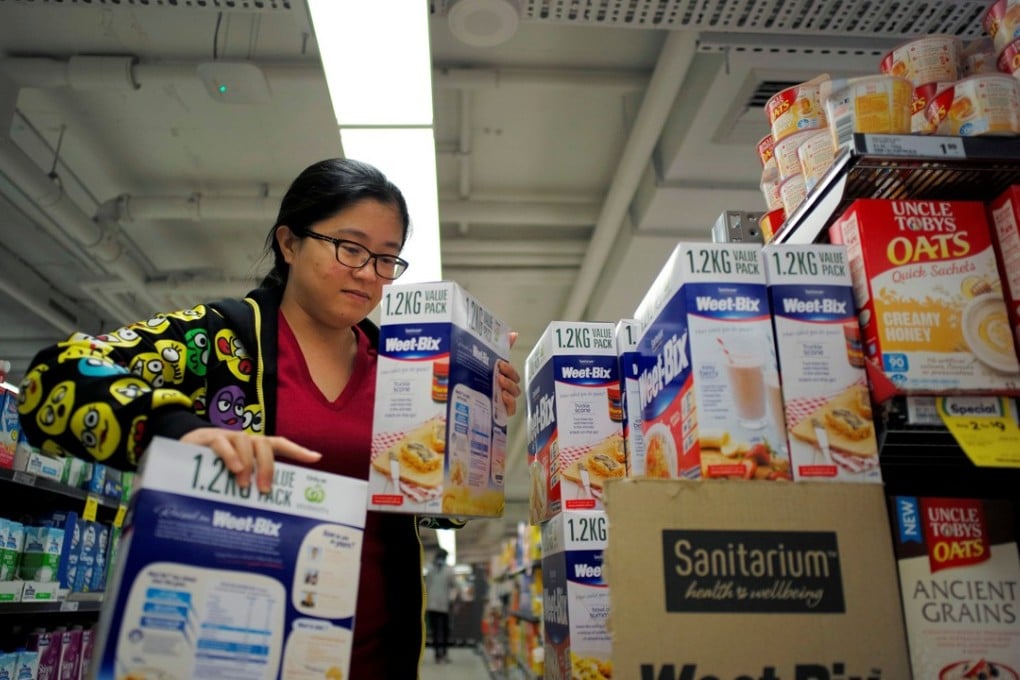Daigou down under: the Chinese shopping trend taking Australia by storm (and a public listing to boot)
China’s overseas shoppers have became big business in Australia, with the power to make or break brands. As the once informal affair morphs into a multimillion-dollar industry, growing pains include greater competition and interest from the taxman

In February, Guangxi native Alex Zhu came up with a new scheme to help her parents with her pricey tuition at one of Australia’s top universities. She started buying baby milk formula and health supplements in Australia to sell to her compatriots in mainland China, advertising her wares on WeChat, China’s most popular social networking platform.
Now the 23-year-old Australian National University student is raking in between A$1,000 (HK$6,160) and A$2,000 a month – and plans to continue with her side project for the rest of her time in Australia.
Zhu – not her real name – is one of an estimated 110,000 Chinese students in Australia making an income as a daigou – a Putonghua term (pronounced ‘dye-go’ in English) for someone overseas who “buys on somebody else’s behalf”. If each daigou made just A$10 per week for a year, the industry would be worth A$57 million annually. It means their collective bargaining power is enough to make or break Australian brands seeking to enter the Chinese market.
Zhu – and countless other students and housewives like her – fits the traditional characterisation of a daigou as a small-time buyer purchasing on behalf of a small network of friends and family. But the world of the daigou is changing. Increasingly, small-time traders like Zhu are expected to lose business to more ambitious daigou operating well-oiled and extensive professional networks chasing big money.
For daigou, the plans by Sydney-based company AuMake to establish the industry’s first public listing are a revealing indicator of the changing landscape and expanding profit margins.
The Sydney-based supplier, which makes about A$13 million a year by selling products to daigou in brick-and-mortar stores and to Chinese consumers directly, is planning to float on the Australian Securities Exchange in October via a back-door listing in a bid to “consolidate the fragmented daigou market”.
As its founder Joshua Zhou put it: “Every Chinese guy in Australia is a daigou.”
